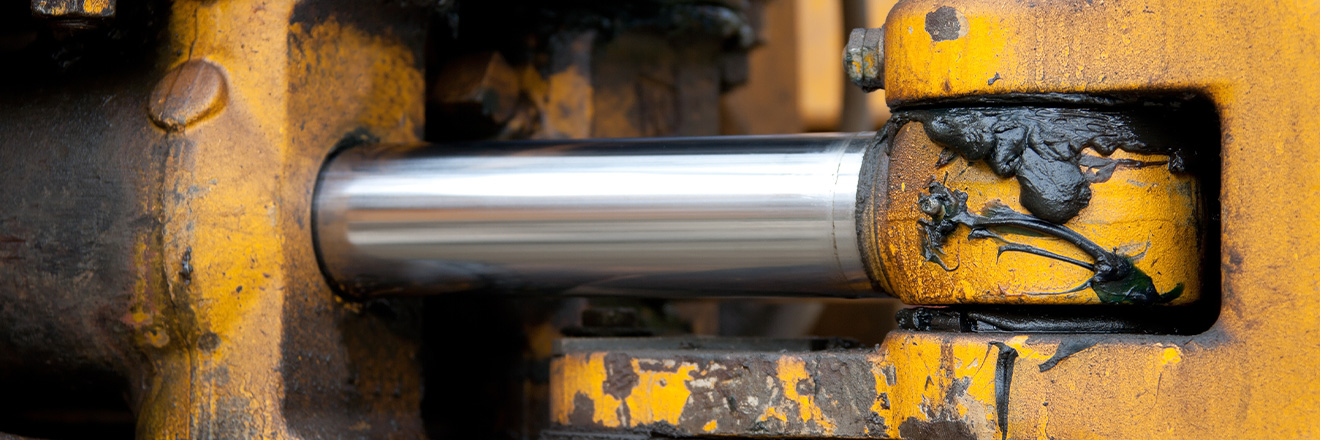Extreme Pressure, or "EP" grease, is designed to lubricate machine components in environments where heavy shock loading and high pressures are prevalent. Non-EP greases cannot function properly in applications that present these conditions - they are unable to provide a film of lubrication between the machine's surfaces. EP greases, on the other hand, consistently provide a lubricating layer in high-pressure conditions, reducing machine wear and optimizing performance.
INSIDE EP GREASE
Generally, EP greases are heavy-duty greases made from a regular lubricating grease that has been enhanced with extreme pressure additives. Different additives are used for different applications; typical EP additives can include graphite and moly. These additives bolster the performance of an EP grease by bonding to the metal surfaces of the machine components and providing an extra barrier between surfaces.
EP GREASE APPLICATIONS
As mentioned, EP greases are designed to withstand heavy shock load and extreme pressure applications. They can be used in universal joints, chassis points, slide and cam mechanisms, bearings, etc. Typically, EP greases can work in a wide range of temperatures, with most boasting a higher dropping point than standard greases.
EXTREME PRESSURE RESISTANCE
The main duty of a lubricating grease is to prevent metal machine components from rubbing against one another. When these components are not separated, they can create damaging debris and, in some instances, weld together. EP greases prevent this. Normal greases, when exposed to extreme pressure or high shock loads, can allow metal-to-metal contact.
WATER RESISTANCE
Unless specifically designed to be water-resistant, an EP grease can lose its enhanced lubricating properties when exposed to water. Greases that do not possess water-resistance properties can experience "wash-out," wherein the lubricant's additives may be separated from the grease and rendered useless. Water in a machine also presents the opportunity for corrosion. An EP grease that can resist water can slow corrosion.
Greases made with simple soap thickeners may be more susceptible to wash-out. For this reason, EP greases designed with complex soap thickeners may be preferred for environments where moisture is a concern. Lithium complex thickeners specifically allow for a wide variety of applications.
TESTING AND GRADING
Greases are typically tested on their water-resistance abilities using the method described in the ASTM D-1264 Water Washout Test; for pressure-handling abilities, the ASTM D-2596 (Four-Ball Weld) or ASTM D-2509 (Timken OK Load Test) are used. The results of these tests can be used to compare different varieties of EP greases.
Greases are also categorized and compared based on their consistency. The consistency grading system currently in use was created by the National Lubricating Grease Institute, and greases are given a hardness rating referred to as their NLGI grade; the lower the NLGI grade, the less viscous the grease is. Most industrial lubricating greases have an NLGI grade of 2.
CONCLUSION
Depending on the application, there is a lot of risk involved when using a low-quality standard grease. Extreme operations call for a grease that can handle the conditions. It is important to understand the factors unique to your operation, and to select a grease that meets and exceeds expectations.
